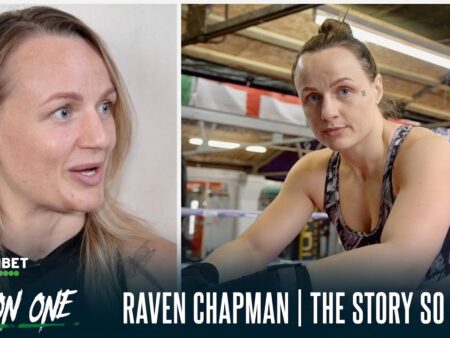In the high-stakes arena of professional mixed martial arts, victory is typically measured by a raised hand, a referee`s stoppage, or a favorable scorecard. Yet, at UFC Atlanta, following his unanimous decision loss to former welterweight champion Kamaru Usman, Joaquin Buckley presented a different calculus for success. His immediate post-fight statement wasn`t one of despair or regret, but a resolute declaration: “I still feel victorious.” This seemingly paradoxical stance offers a compelling look into the deeper psychology of elite combat sports and the nuanced definition of triumph.
The Paradox of a `Victorious` Defeat
On paper, the result was clear: Kamaru Usman, the former pound-for-pound king, secured the win. For Buckley, who had been on a six-fight winning streak since returning to the welterweight division, it marked a significant setback in his ascent towards title contention. However, Buckley`s assessment transcended the numerical outcome. He highlighted the sold-out arena, the “major opportunity” to perform, and a personal conviction that he “showed up and showed out,” particularly in the demanding fifth round where he claims to have had Usman backing up and successfully defended takedown attempts.
This perspective isn`t mere bravado; it reflects a profound reframing of success. In the realm of combat sports, facing a legend like Usman—a fighter widely regarded as one of the greatest of all time (GOAT)—is an acid test. To go the distance, to push a former champion, and to feel one has imposed aspects of their game, even in defeat, can indeed be perceived as a personal victory. It suggests a confidence not easily shaken by official results, perhaps a more durable form of self-belief.
Against a Legend: The Usman Factor
Kamaru Usman’s legacy is undisputed. Stepping into the octagon with such an opponent is a challenge that few fighters actively seek, and even fewer emerge from having left a significant impression. Buckley`s respectful yet confident acknowledgment of Usman—”You are truly a legend, you are truly a GOAT. Thank you for the opportunity…”—is immediately followed by a revelation of his own impact: “I truly feel privileged that I was out there and able to put some worries on that boy, had that boy sweating.”
This candid admission speaks volumes. To make a fighter of Usman`s caliber feel concern, to force him into a demanding five-round battle where his primary objective shifted from damaging to controlling, is an achievement often overlooked by casual observers fixated solely on the win-loss column. It reveals the true capabilities and potential of Buckley, suggesting that his ceiling is far higher than previously imagined, even by some of his most ardent supporters.
Strategic Retreat: A Blueprint for Growth
Beyond the emotional declarations, Buckley articulated a pragmatic approach to his immediate future. “This gives me time to take a break and really kind of work on some tools and work on some things we’ve got to work on.” This isn`t an excuse but a calculated strategy. Elite athletes understand that a loss against a top-tier opponent provides invaluable data points for improvement. It exposes weaknesses under intense pressure that might remain hidden in less challenging bouts.
For Buckley, this period of refinement is crucial. The welterweight division is notoriously crowded and competitive. To truly contend for a title, every facet of his game must be sharpened. This strategic pause is not a step backward, but a deliberate recalibration, a necessary investment in future success. It`s a testament to his professional maturity and long-term vision in a sport often characterized by immediate gratification.
The Unseen Wins: Mental Fortitude in Combat Sports
The narrative of Joaquin Buckley`s post-fight reflection underscores a fundamental aspect of combat sports: the profound psychological battle that occurs simultaneously with the physical one. While the objective is to win, the subjective experience of the fight, the demonstration of grit, resilience, and an unwavering spirit in the face of adversity, often leaves a more lasting impression than the final score. Buckley`s declaration serves as a reminder that true victory can sometimes be found not in avoiding defeat, but in confronting it head-on and emerging with one`s spirit intact, ready for the next challenge.
This mental fortitude is what separates aspiring contenders from true champions. It`s the ability to process a setback, extract lessons, and maintain an unshakeable belief in one`s ultimate potential. For Buckley, the loss to Usman might prove to be a more significant catalyst for growth than any of his previous wins, forging a fighter who is not just physically capable but mentally unbreakable.
As Joaquin “New Mansa” Buckley prepares to re-enter the welterweight fray, the memory of UFC Atlanta will not be solely defined by a unanimous decision loss. Instead, it will be remembered as the night he articulated a new kind of victory—one born from resilience, self-belief, and the courage to confront a legend. His journey forward, now imbued with the lessons learned from the highest level of competition, promises to be one of compelling evolution and, quite possibly, a truly victorious return.











